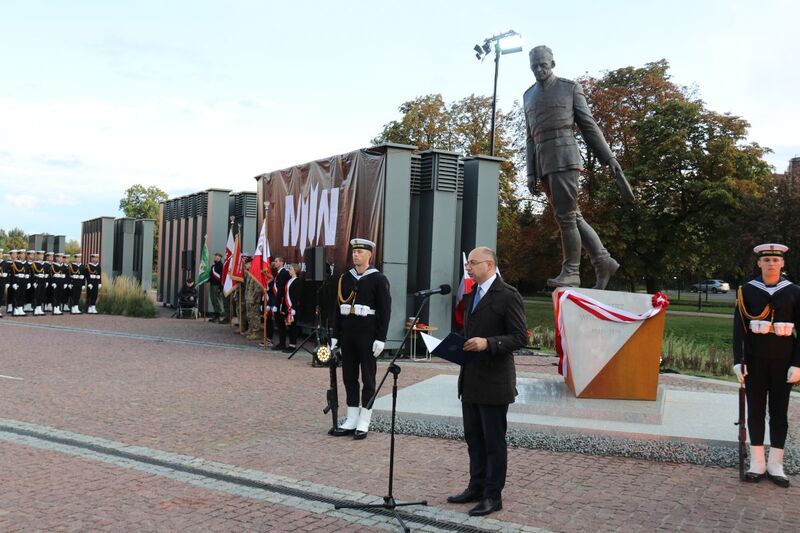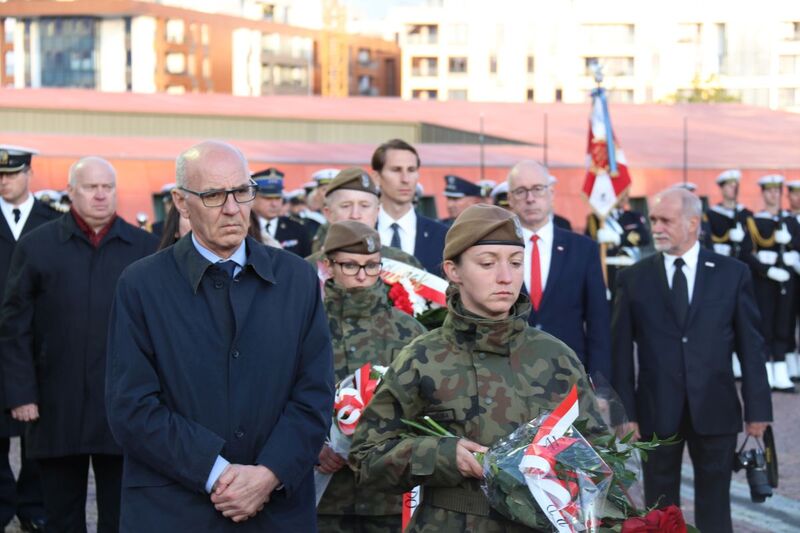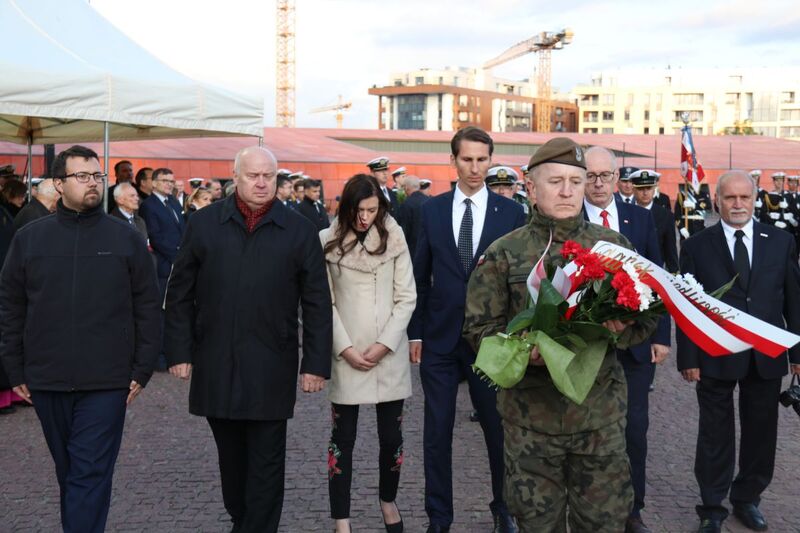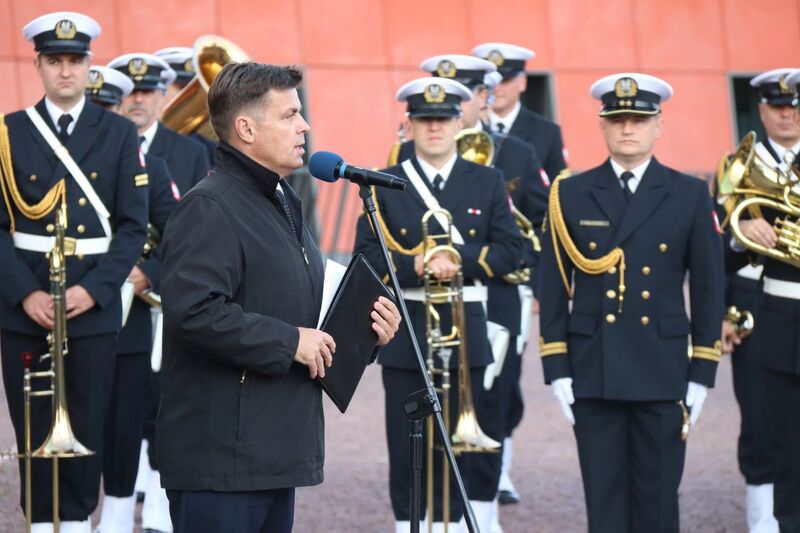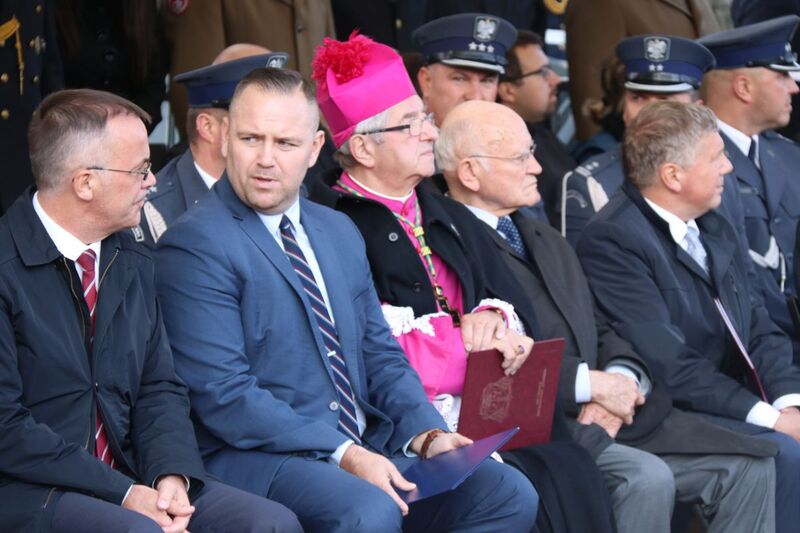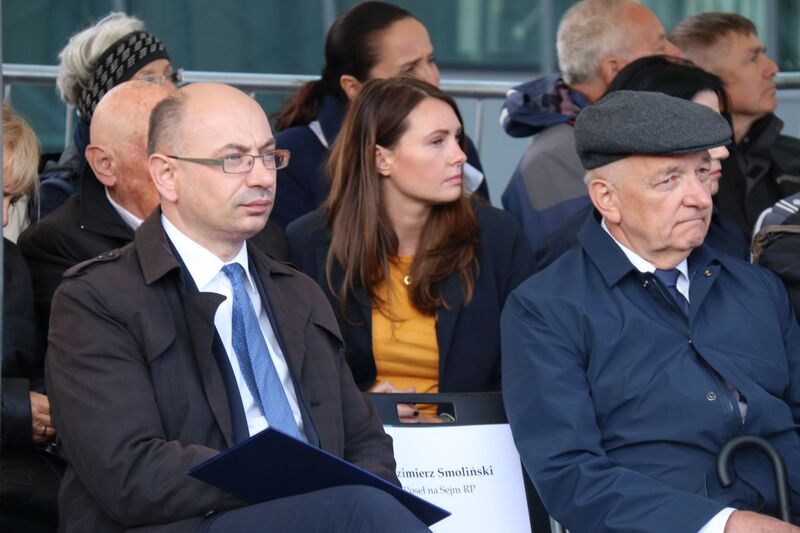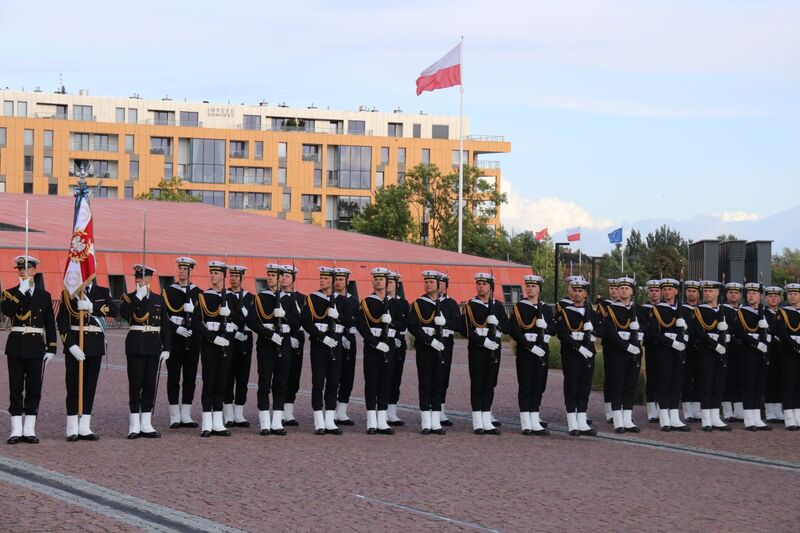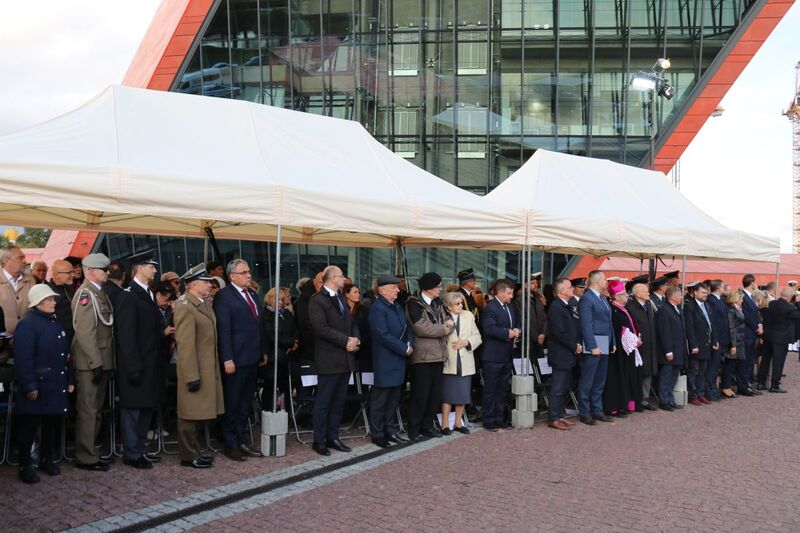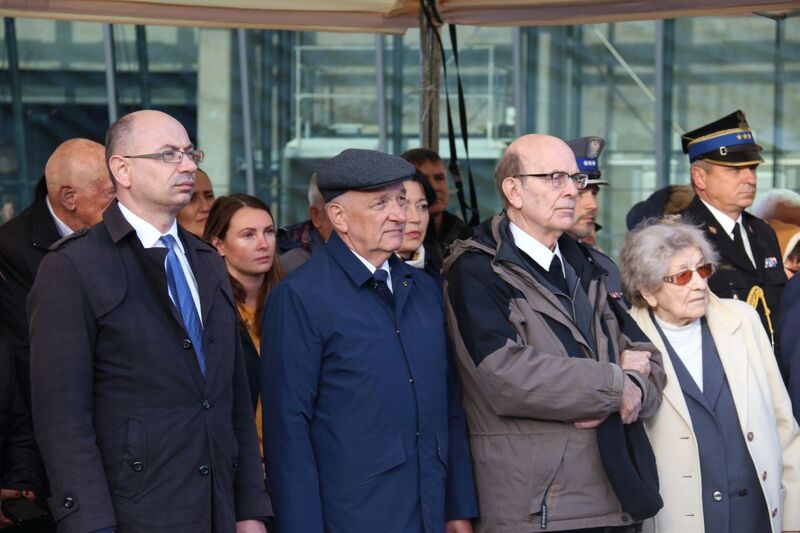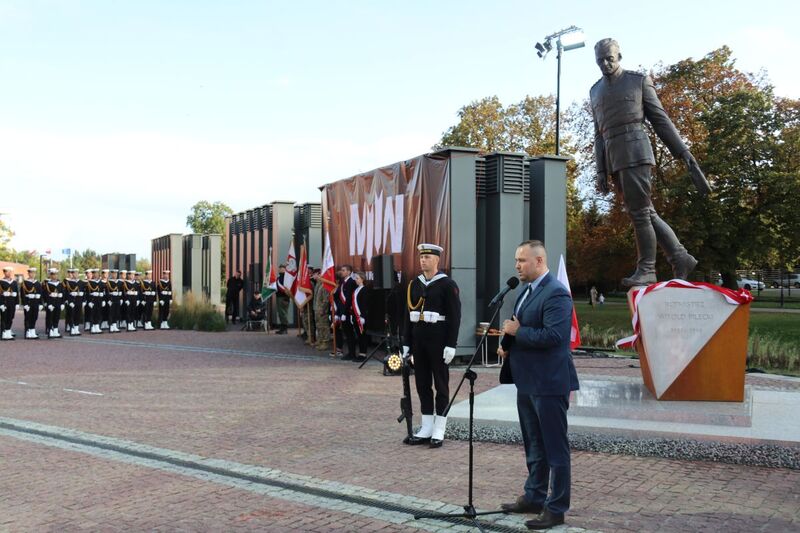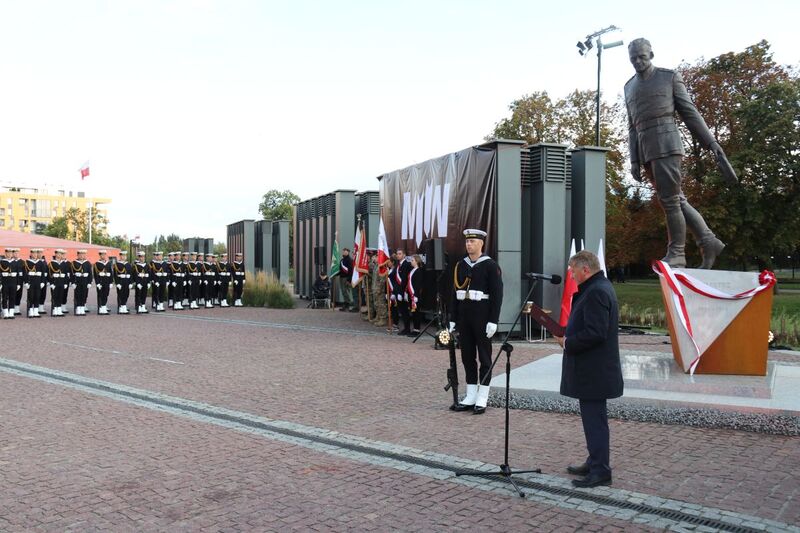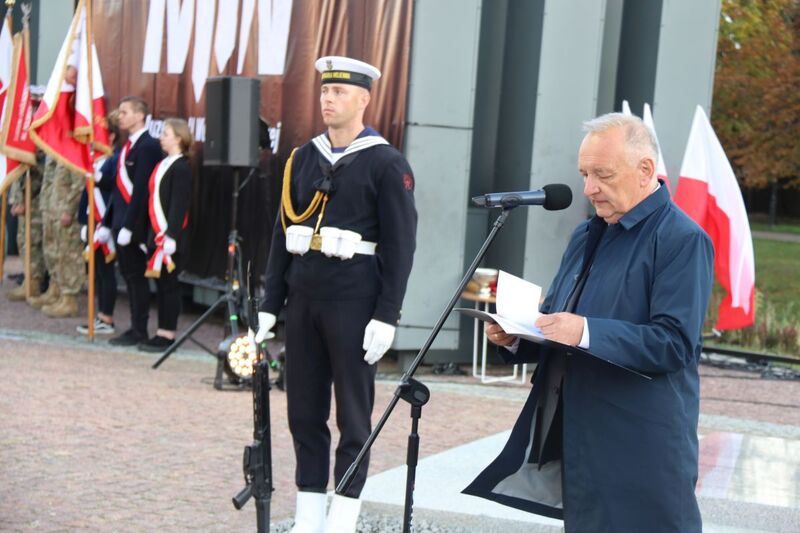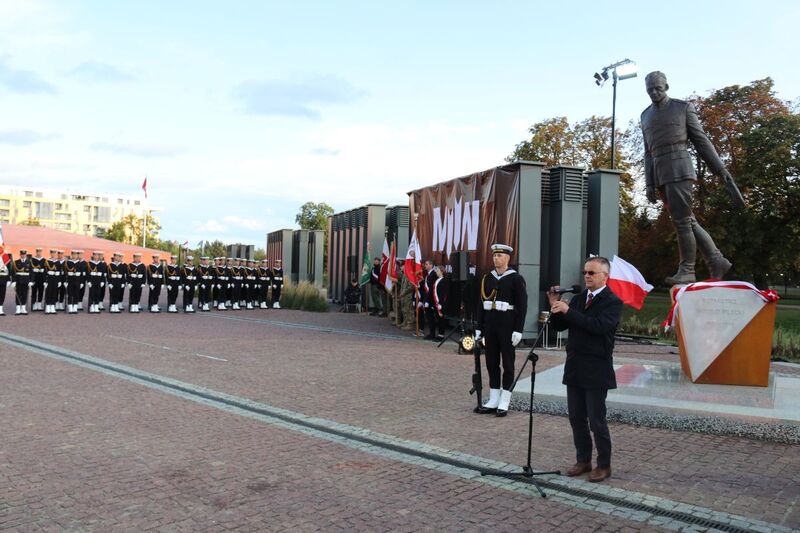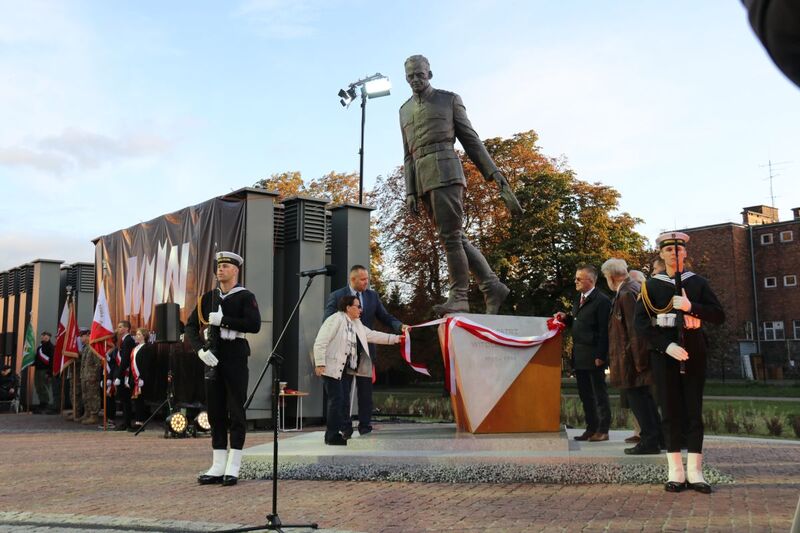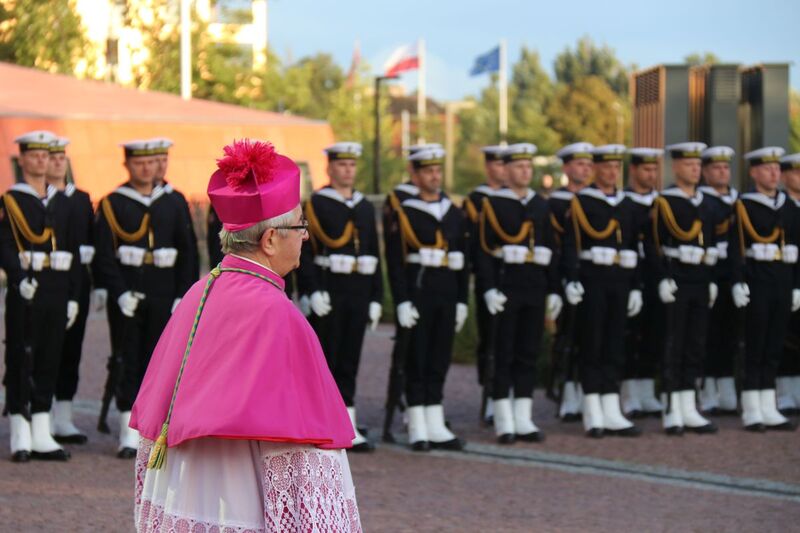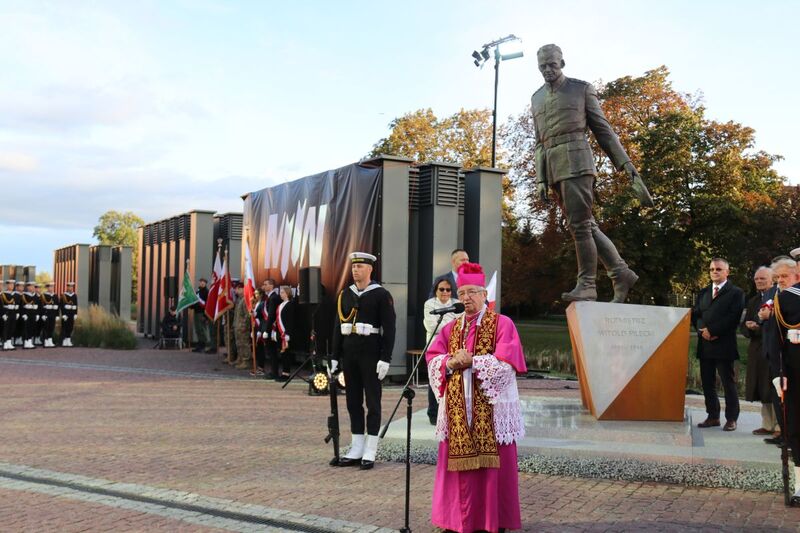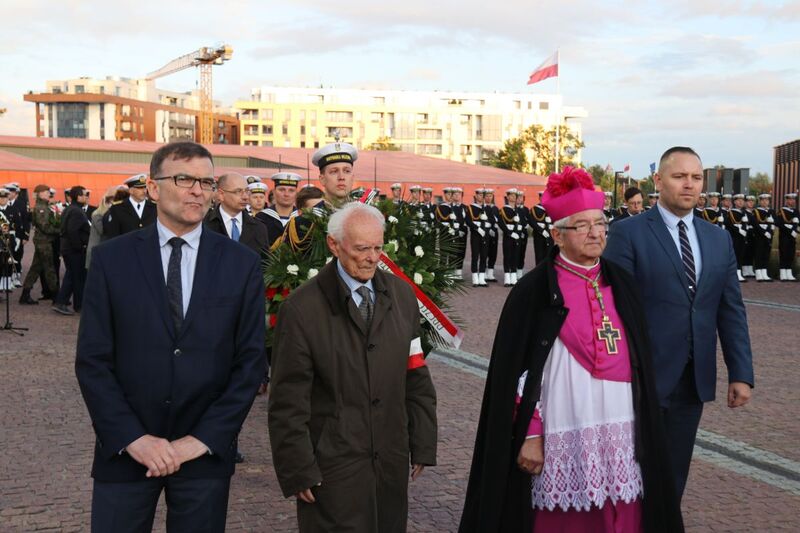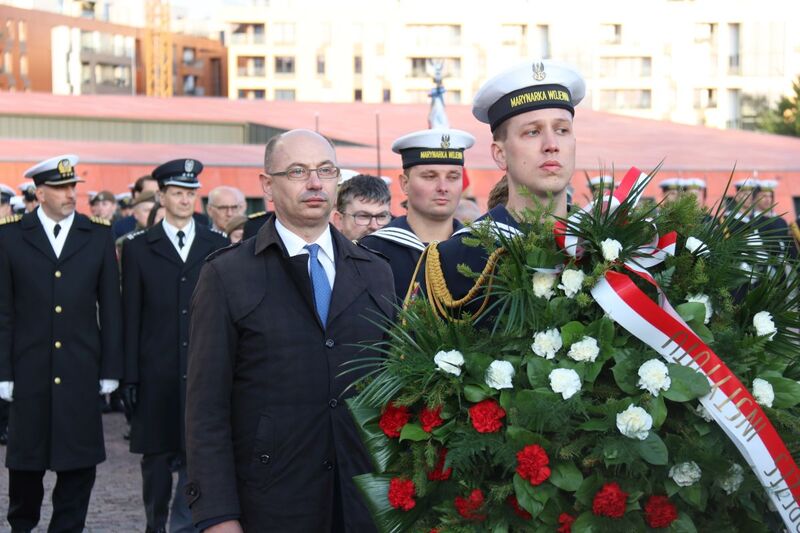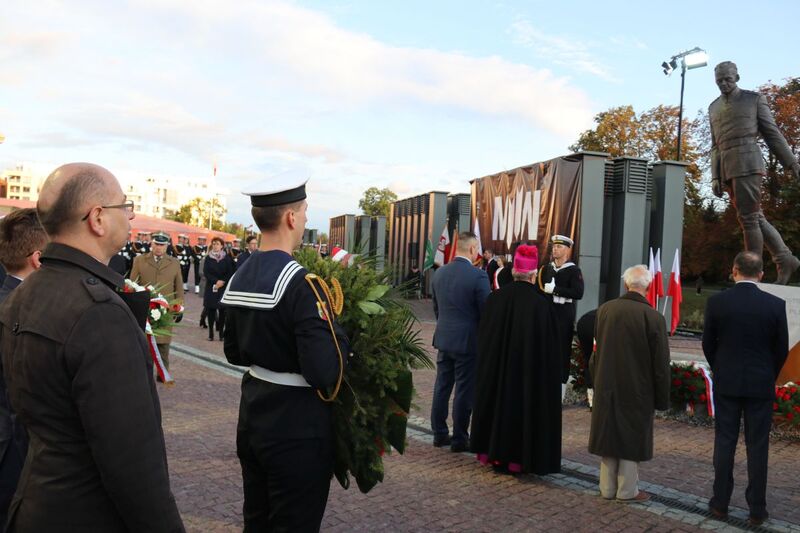The monument presents the figure of Captain Witold Pilecki placed on a pedestal referring to the architectural forms of the Museum of the Second World War. The bronze figure measuring 2.8 m is captured in movement, which symbolically reflects the Captain's mission in the German Auschwitz concentration camp, where he found himself as a volunteer, following the order to infiltrate and organize resistance structures in the camp, as well as his reckless escape - Witold Pilecki, depicted in the captain's uniform, leaves the camp hat behind. Placing the figure on the edge of the pedestal symbolizes the characteristic feature of the Captain's biography, who for most of his life moved between life and death, between two totalitarianisms, and between the independence and the enslavement of Poland.
"When the IPN began its activity almost twenty years ago, the name of Witold Pilecki was just beginning to break into the wider consciousness. Murdered by the communist regime, he was also sentenced to oblivion. This, however, was much more difficult to conduct than physical annihilation. And although at the end of the last century it might seem that we were witnessing the triumph of oblivion, thanks to the determined family and steadfast propagators of Captain Pilecki’s faithful service, every year more and more people got to know this magnificent figure.
Beginning from 2000, the IPN could also join the process of restoring and revealing the truth about the criminal origins of red terror. This is, among other things, why today the Captain's name has become a symbol, arousing admiration and gratitude also outside our country (...)," said Deputy Presodent of the IPN Dr. Mateusz Szpytma.
The ceremony was attended by representatives of local and central authorities, including Deputy Minister of Culture and National Heritage, Jarosław Sellin, veterans of struggles for independence, democratic opposition activists in the People's Republic of Poland, representatives of uniformed services and a group of several hundred Gdańsk residents. The monument was solemnly blessed by Archbishop Sławoj Leszek Głódź, Gdańsk Metropolitan. The official speeches included several letters, including one from the Captain’s daughter, Zofia Pilecka-Optitowicz, President of the Republic of Poland, Andrzej Duda, and Speaker of the Senate, Stanisław Karczewski.
